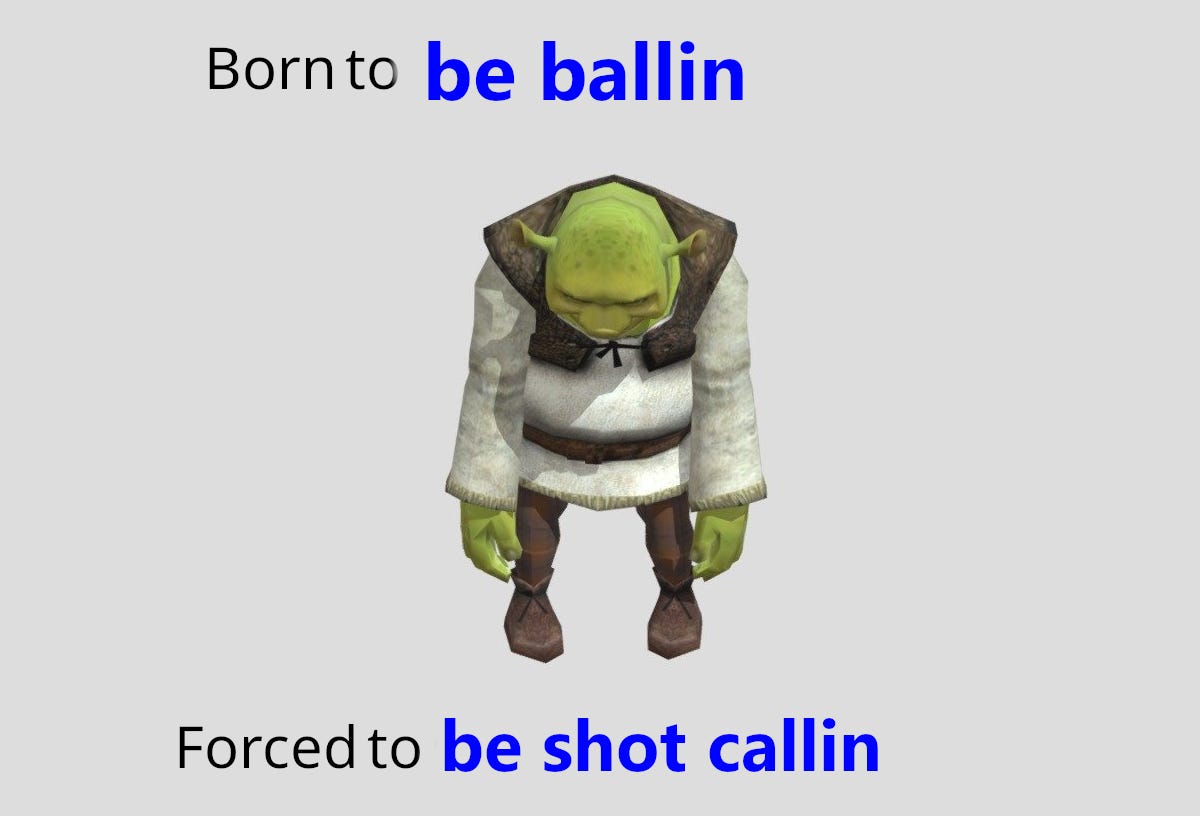How to stop marketers from transforming into vengeful supervillains
A marketer's POV on how to save yourself from your inevitable fate.
The Dunning-Kruger effect is a cognitive bias wherein people with little expertise or ability assume they have superior expertise or ability. This overestimation occurs because they lack the skills to accurately assess their own limitations.
I talk to a lot of marketers all the time, from newbies I'm mentoring to wizards whose ideas I'm trying to steal. (😈) Almost all of them lament about the Dunning-Kruger effect. Especially consultants.
Why?
Marketing is like music. Everyone has an opinion about it whether or not they're a musician themselves. Could they do better? Absolutely not. Do they suspect they could? Probably.
You’ve seen this happen before:
Company hires marketer with tons of experience
Marketer never earns company’s trust
Marketing ideas don’t get done, marketing becomes an all-hands-on-deck time-suck activity
Marketer turns evil
I can't save you from that, but I can help mitigate it where possible.
As a technical marketer who has learned (often the hard way) what impact looks like, here’s what I do:
1. Crystal clear expectations
Firstly, you have to understand what your actual goals and objectives are. You could be Steve Jobs, but if your stakeholders just want a better website from you, you need to lock in and deliver.
A lot of people struggle with this, including me historically, given that I'm a thoroughbred startup marketer who can do everything from writing code to creating background music.
The upside is that you don't have to be responsible for stuff outside your expectations. Congrats, that's a 75% stress reduction right there.
2. Set yourself up with ways to win
Leave room with your stakeholders for ambiguity and qualitative wins.
100% of your KPIs will not fall into the "vibes" categories, but if you set clear goals with some easy-to-understand metrics, you can also sneak a few vibey ones in there.
The vibes (I guess we're calling them that) ARE important, but unless your company is comprised of marketers, they probably don't see their value like you do.
2.5 Adjusting your scope over time
Morbidly curious, I’ve seen a lot of marketing job descriptions on LinkedIn. Interesting take: The landscape looks good for bad marketers, and bad for good marketers.
I recently chatted with the COO of a successful SaaS company, and he helped me form a conclusion about something I’ve been noticing for a while—and you might have as well:
Marketing is generally represented by companies as one of three buckets:
Growth marketing (ads, channels, CRO, analytics)
Product marketing (technical guides, BoFu, partnerships)
Content marketing (ToFu, voice, tone, vibes)
Most marketers only have skills from one or two of these buckets
Even fewer are truly “adept” at more than one of these buckets, with the adaptability to run a playbook at different companies
Most tech companies separate job functions into just one of these buckets, effectively killing cross-bucket skill development for marketers
You see the problem, right?
If you’re a marketer that has worked at a handful of companies and executed across all three buckets, what type of marketer do you call yourself?
To me, the way to remedy this is to give yourself tasks and projects across different disciplines so that you an grow within your current company (and also be recognized for it.) But to do that, you need to:
3. Call your shots
Document and share your intentions upfront, and as often as possible.
The difference between people trusting your judgment as a marketing leader versus thinking you just got lucky (or outright ignoring your contributions) is solely hinged on whether or not you called your target before you hit it.
I can think of a bunch of examples throughout my career of this phenomenon working both in my favor and against it.
A long time ago, I worked at a company that didn’t want to do competitive SEO content. To them, the idea of talking about a competitor was abhorrent.
“What we actually need to do is frame the conversation and narrative in such a way that no one would even consider using a competitor, or even want to know more about them.”
A PM at the company literally said that to me, I’m not exaggerating.
I started publishing competitive content anyway and woke up the next day to a bunch of horrible messages in the @everyone channel. It felt like the entire company was aligned against me.
In this moment, because I had called my shots, I was able to link to a document I had created describing the scope and goals of the competitive content program. It saved me a lot of stress in the moment and also bought me enough time to let the competitive content start getting clicks.
And clicks it got. That same company, some 5 years later, now makes SO MUCH competitive content that they even compare competitors against other competitors. Again, I’m not exaggerating.
Marketing isn’t what you think it is
To summarize, you might think that you’d be a good marketer if you have the talent to gauge what’s good versus what’s not, the execution to get it done, and the rigor to keep adjusting your strategy as data comes in.
What you’ve hopefully learned is that there’s more to it than that. In order to be successful, you also need to be an advocate for yourself: You’re going to be up against people who can’t see what you see—and they’re the ones who write your paycheck.
You’re going to be managing stakeholder relations your entire career. Make sure you don’t let it turn you into a villain.





